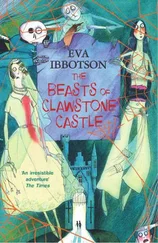Reynard pushed his coffee cup away with a delicate, long-wristed hand. “Supposing,” he said carefully, “that the conference is a success. That reunification is somehow arrived at, or its beginnings anyway. I think you’re right that you would be the choice to direct it. But if you went down under the auspices of the Union for Social Engineering, it would be their plan that you would direct, wouldn’t it? I mean ‘make the world work’ and the rest of their ideas.”
“I don’t expect you to agree.”
“What do you expect?”
“I don’t want to be bullied by them. Of course I have to sign this statement. But I want to preserve some independence.”
Reynard pretended to consider this. “Do this,” he said at last. “Tell them today that you are preparing a statement of your own, a statement of goals for the conference. You want it included with theirs.”
“They will refuse.”
“Assure them it won’t contradict theirs. That you will sign theirs if they will accept yours. If they refuse still, throw a rage. Announce their intransigence. Threaten to break off negotiations.”
“None of that will do and good. They’ll want capitulation.”
“Of course. And in the end you’ll capitulate.”
“What have I gained? They’ll say I’m hesitating, malingering.”
“If they say that, admit it. It’s true.”
“But…”
“Listen. They know you are the only possible representative at the conference from this Autonomy. Let them know you require this measure of independence — a separate statement. If they won’t go that far, they will at least allow you to appear to negotiate for one.”
“It seems like very little.”
“You intend to sign. They know that.”
Gregorius considered this, and his hand, which shook. “And where is this statement? They won’t wait long.”
“I’ll prepare it. Tomorrow you’ll have it.”
“I’d like to discuss it.”
“No time. Believe me, it will be mild enough.” He rose. The appointments secretary, whose name was Nashe, approached. “Did you know, by the way,” Reynard said, “that USE has recently developed a military arm?”
“Hearsay.”
“Of course they are pacifist.”
“I’ve heard the rumors,”
“The USE people are here, Director,” Nashe said.
“Five minutes,” Gregorius said without looking at her. “They’ve denied everything. Assassinations, terror bombings — they’ve completely condemned all that, whenever they’ve been linked with it.”
“Yes, But the rumors persist.” He took up his stick. “As effective, it seems to me, as if they were true. Now, is there another exit here? I’d rather not pass the time with USE.”
Gregorius laughed. “You amaze me. You hate them, but you show me how to surrender to them.”
“Hate,” Reynard said, smiling his long, yellow-toothed smile, “isn’t the night word, exactly.”
When his counselor had sticked away without farewell, Gregorius sat again in the deep chain behind the blank field of his desk. He should compose himself for the USE people. They would speak in that impenetrable jargon, dense as the priestly Latinate of ancient Jesuits, though half of it was invented yesterday; would speak of social erg-quotients and a holocompetent act-field and the nest of it, though what they wanted was clear enough. Power. He felt, involuntarily, an apprehensive reflex: his scrotum tightened.
That was why Reynard was invaluable. As invaluable as he was strange. He knew those ancient alterations of the spine and cortex, knew them when he saw them, though “saw” wasn’t what he did. Unconfused by any intervening speech, he knew when a man was beaten, on unbeatable; he knew at what point fear would transmute within a man, alchemically, to anger. He had never been wrong. His advice must be taken. It had made Gregorius, and unmade his enemies.
Concerning USE, though, he couldn’t be sure. How could a creature not quite a man tell Gregorius anything just, anything disinterested, about a force that wanted to make the world wholly man’s? Perhaps at this point the fox ran out of usefulness to him.
And yet he had no choice. He no longer wholly trusted the fox, and yet there was no way now he could not follow his advice; he knew of nothing else to do. He felt a sudden rush of chemical hopelessness. The damn crystal. He looked at the silver cylinder on his desk, moved to pick it up, but did not.
He would be firm with them. It couldn’t cost him anything to be intransigent for a day. It would be on record then that he was no thing of theirs to be slotted into their plans, or however they put it. He glanced at his watch. There would be no time today for his afternoon ride with Sten. He wondered if the boy would be disappointed. For sure he wouldn’t show it.
“Nashe,” he said in his beautifully modulated voice, “ask them to come in.”
There was no way for Reynard to conceive of himself except as men had conceived of foxes. He had, otherwise, no history: he was the man-fox, and the only other man-fox who had ever existed, existed in the tales of Aesop and the fables of La Fontaine, in the contes of medieval Reynard and Bruin the bear and Isengrim the wolf, in the legends of foxhunters. It surprised him how well that character fitted his nature; or perhaps, then, he had invented his nature out of those tales.
The guards at the gate neither stopped his black car nor saluted it.
The foxhunters (like those in the aquarebbes that lined Gregorius’s walls) had discovered long ago a paradox: the fox, in nature, has no enemies, is no one’s prey; why, then, is he so very good at escape, evasion, flight? They used to say a fleeing fox would actually leap aboard a sheep and goad it to run, thus breaking the distinctive trail of its scent and losing the hounds. The foxhunters concluded that in fact the fox enjoyed these chases as much as the)’ themselves did, and used not natural terror in its flight but cunning practiced for its own sake.
And so they ran the fox to ground, and the dogs tore it to pieces, and the hunter cut off its face — its “mask,” they used to say, as though the fox were not what it pretended to be — and mounted it on his hallway wall.
“What did he say?” the chauffeur asked when they were outside the grounds. “Will he give in to USE?”
“He will. Nothing I could say would move him.”
“Then he’ll have to die.”
“Yes”
It had taken Reynard years to gather all the Directorate’s power into Gregorius’s hands, to eliminate, one by one, every other power center within the fluctuating, ill-defined government. When he was gone, the only person left in the Directorate capable of running the Autonomy would be the lean woman Nashe, who guarded his door.
Which is why, after years of self-effacing service, she had agreed to Reynard’s plan.
She wouldn’t, of course, last long. She was a servant only, however capable. She would fall, and there was no one else; factions only, like the crazy anarchist gang his chauffeur belonged to. There would be chaos.
Chaos. He couldn’t, yet, deliver this realm in fealty to his king. He could bring to him, as fox Reynard did in the old tale, the skin of Isengrim the wolf, And make chaos. That was the best he could manage, and for the moment it would have to do.
Perhaps the old foxhunters hadn’t been so wrong. A creature poised on some untenable line between predator and prey: that wouldn’t be a bad school for cunning. For learning any art of preservation. For having no honor, none: not the innocence of prey, nor the predator’s nobility. It was sufficient. If men wanted to create such a beast, he would be it; and he thanked them for at least having given him the means for survival.
Читать дальше












